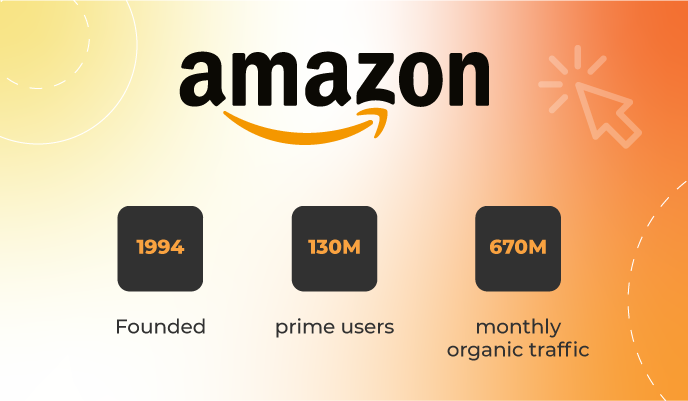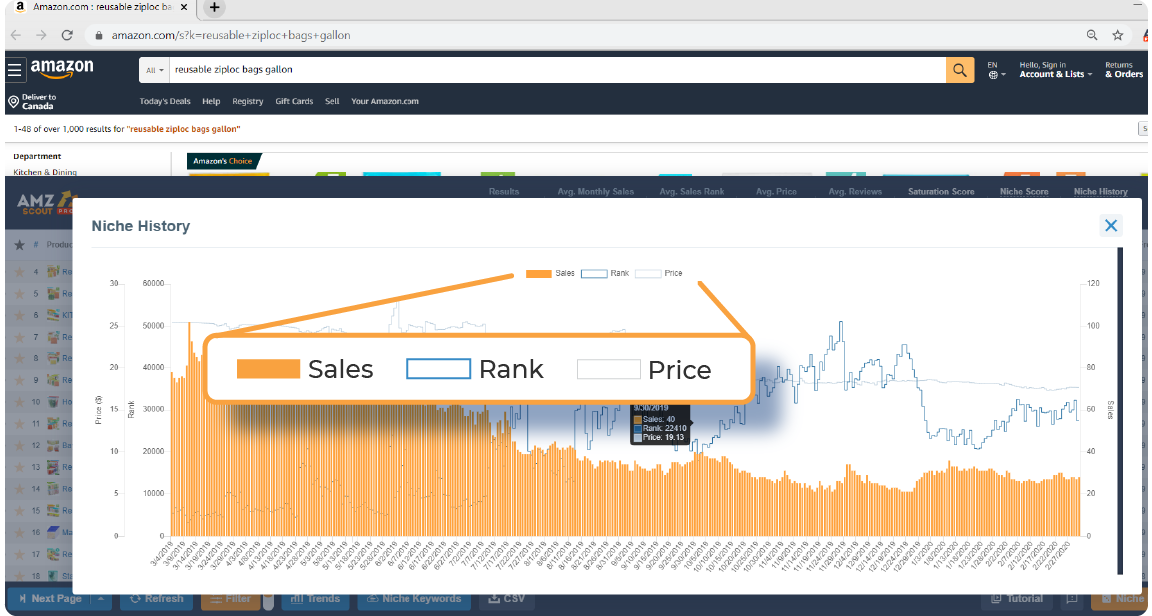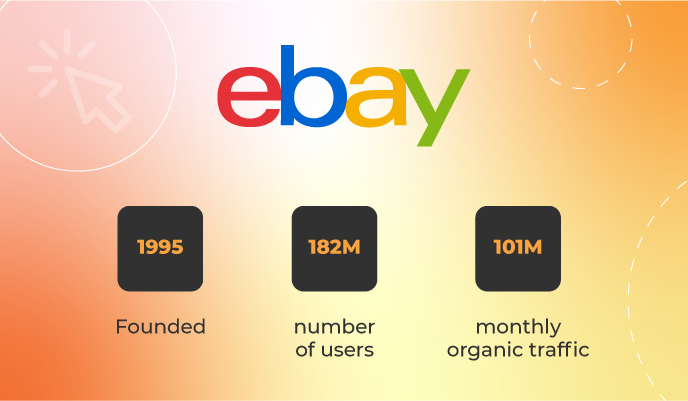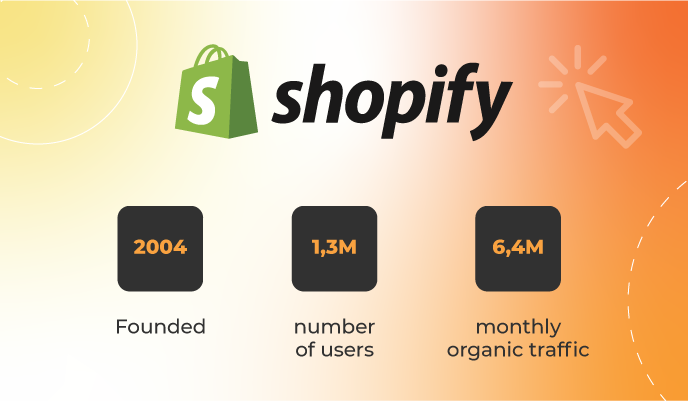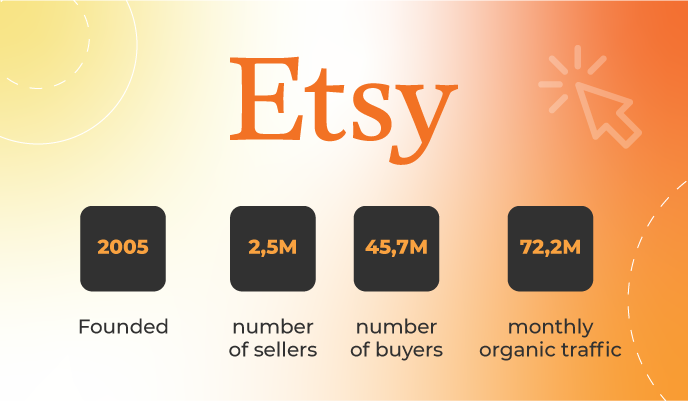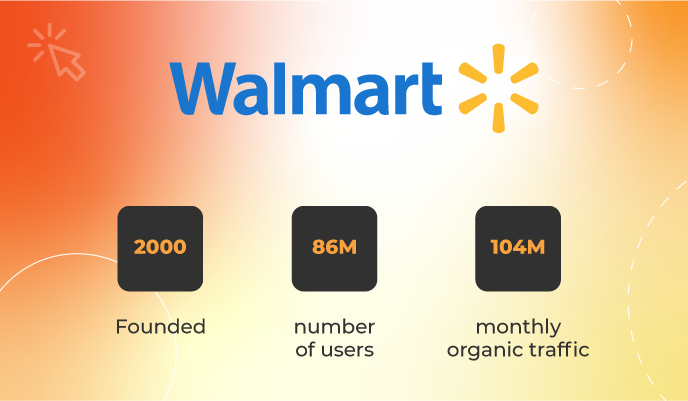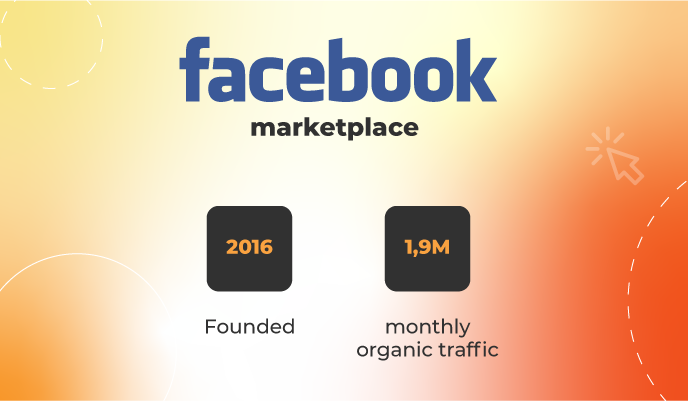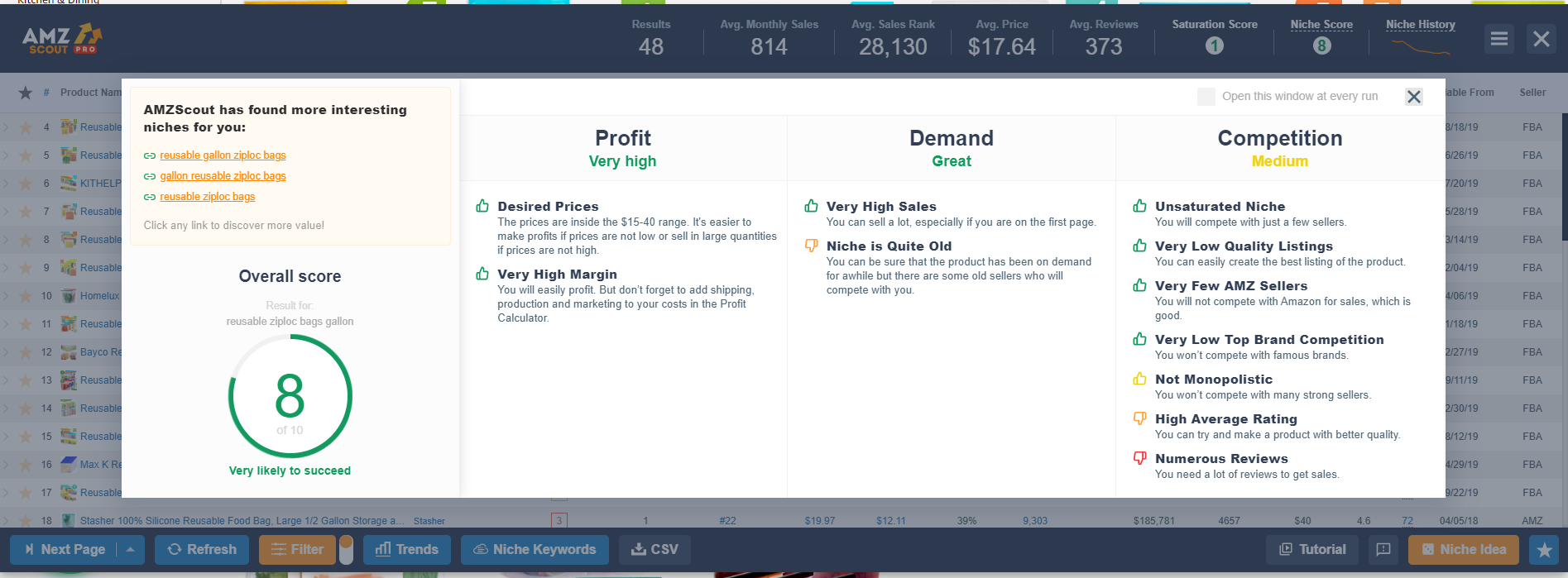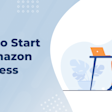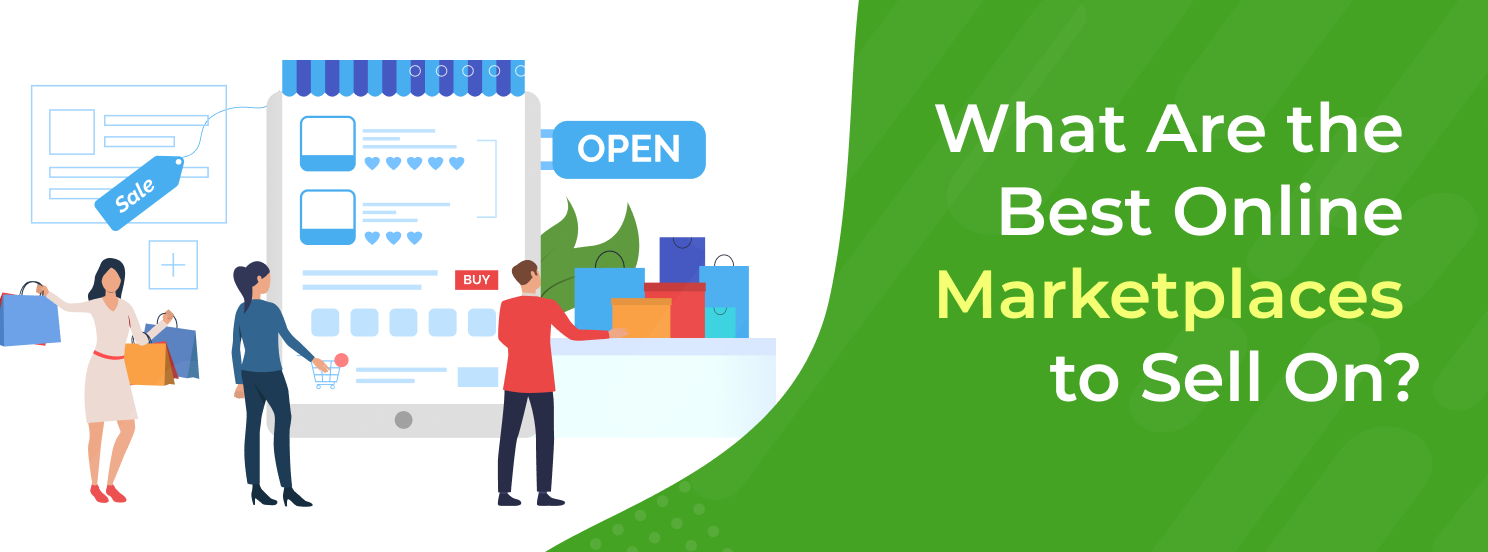
What Are the Best Online Marketplaces to Sell On?
With more and more people turning to the internet to do their shopping, eCommerce has become a great way for entrepreneurs to make money. This has given rise to a number of online marketplaces, including websites like Amazon and eBay, that let smaller sellers list their products online.
Each platform has its pros and cons, and some marketplaces will work better for certain sellers than others, depending on what you’re selling. So, how do you go about choosing the right one for your business?
Table of contents
In this complete guide, we’ll walk you through every platform to help you figure out what is the best online marketplace to sell on.
What Criteria Should You Use When Choosing a Marketplace?
Before we start breaking down each individual platform, it’s a good idea to establish what your criteria should be when determining where to list your products.
Here are the most important things you need to consider:
Ease of Entry: How easy is it to sign up and list your items on their site? You’ll want to avoid platforms that are overly complicated, as this wastes valuable time.
Costs and Fees: Every marketplace will charge you some sort of fee for using their services. The lower the fee the more profit will be left for you after you sell your products.
Fulfillment and Shipping: Once you sell an item you need to ship it to the customer. Some platforms offer services that help you do this.
Potential for Growth: You depend on the platform you’re selling on for your customers. The more popular it is, the more sales you’re likely to make. So, choose a marketplace that has the potential to continue growing into the future.
Ok, with all being said, let’s start looking at each platform and how they perform in each of the areas listed above.
Amazon
Amazon is by far the biggest online marketplace available to sellers and pretty much the definition of a successful eCommerce site. It’s the one pretty much everyone has heard of and will likely be the first place you think about selling your items on.
Pros
Hugely Popular: Amazon easily has the most customers of any platform out there. In fact, nearly 50% of all eCommerce sales occur on Amazon. This means your listings will generate large amounts of organic traffic.
All-in-One Marketplace: You can sell virtually anything on Amazon, including books, fashion items, clothing, furniture, and more.
Great for Beginners: Getting started on Amazon is quick and easy, making it a great option for people who are new to selling online.
Amazon FBA: The FBA program lets sellers ship their products to Amazon for storage. Amazon will then package and ship your items to your customers when they’re sold.
Plenty of Helpful Tools: There are a number of tools available to help you find great products to sell and build a successful Amazon business. We recommend AMZScout’s PRO Extension and Product Database for anyone who plans on selling on the platform (both are available for a free trial). These apps help you find profitable products and analyze data like sales, reviews, rankings, trends, and more.
Cons
High Fees: Amazon comes with a lot of benefits, but you do have to pay for those benefits. The platform charges fairly high fees compared to other platforms, but the higher number of customers should make up for it.
Competition: There are a lot of customers on Amazon, but there are also a lot of other sellers, making it very competitive. If you use tools like AMZScout’s Pro Extension though you should be able to find niches that are less competitive.
eBay
eBay has been in business since 1995, making it one of the oldest eCommerce sites on the internet. It’s still extremely popular among buyers and sellers, but is it right for your business?
Pros
Good Amount of Traffic: While it doesn’t have as many customers as Amazon (no one comes close in the regard) eBay is still one of the most visited sites on the internet, meaning you’ll have plenty of buyers for your items.
In-House Tools: While Amazon has plenty of third-party tools available, the platform doesn’t offer much in the way of its own tools. eBay, however, offers a number of tools, including Shop Analytics and Seller Success Resources. You have to pay extra for these, but it’s nice that they’re available.
International Seller: The platform is available around the world. So, whether you live in China, Japan, India, the USA, or anywhere else, it will be easy for you and your customers to access it.
Longevity: eBay has been around a very long time and was one of the first sites to offer an online marketplace for sellers.
Cons
Customers Expect Lower Prices: eBay started as an auction site, which has caused many of its customers to go there looking for cheap items.
No Shipping and Storage Options: eBay doesn’t have a fulfilment program, so you’ll have to ship all of your products yourself.
Shopify
Shopify is an eCommerce platform that can be used by sellers to sell products on their own websites. If you’re looking to open up your own online store then this option might be for you.
Pros
Lower Fees: Because you’re selling on your website you’ll pay much lower fees than on sites like Amazon and eBay.
Sell on Your Website: Shopify allows you to design your own online store under your own name, which can help you grow your unique brand.
Easy to Use: Shopify is known for its ease of use. Once it’s installed on your website it’s very user-friendly.
Cons
No Built-In Customer Base: Because you’re selling on your own website it’s up to you to drive traffic to your product pages. This often means spending lots of money on digital advertising in order to get customers.
You Have to Ship Your Own Products: Again, because you’ll be selling on your own store, you’re in charge of everything. This includes packaging and shipping items to customers.
Etsy
Etsy is a newer online marketplace that focuses on handmade, craft, and vintage items. It’s more specialized than sites like Amazon and eBay, which could be good or bad depending on what you’re selling.
Pros
Great for Homemade Items: If you’re looking for a place to sell your own homemade items this is it. These types of items will sell much better on Etsy, since people go there looking for that kind of stuff.
Marketing Tools: Etsy offers sellers a number of marketing tools. This makes it easy to create coupon codes for your customers and promote your products on their website.
Easy to Get Started: Signing up as a new seller is quick and easy and you can get your online business up and running within an hour.
Cons
Limited Product Categories: Because of its focus on local craft products, there are a limited number of product categories to choose from. So, if you want to sell a wide range of products Etsy isn’t a great choice.
High Fees: Etsy has very high fees, even higher than Amazon, which can really cut into your profits.
Walmart
Walmart started as a brick-and-mortar business but has grown to become one of the world’s largest online retailers. So, is it worth selling on their platform?
Pros
Known Quantity: Walmart is a global selling giant. Everyone knows Walmart and while they are newer to eCommerce they have a recognizable brand that people know and trust.
Plenty of Customers: Walmart’s website ranks third behind just Amazon and eBay in eCommerce sales.
Walmart Fulfilment: Like Amazon, Walmart offers fulfillment services and will package and ship your products to customers for an added cost.
Cons
You Have to be Approved: Unlike other marketplaces that allow you to simply sign up and start selling, Walmart requires you to apply first. They will then review your application and decide whether you’ll be allowed to sell on their platform.
Not Focused on Online Sales: While their online business is growing, online sales still only account for 2-3% of their total revenue. They’re still more focused on their brick and mortar locations, which means their eCommerce technology is lagging behind other marketplaces.
Facebook Marketplace
It seems like everyone is trying to get into eCommerce, and that includes social media giant Facebook. Here’s how they stack up to other marketplaces.
Pros
No Listing Fees: Unlike most other marketplaces, Facebook doesn’t charge a listing fee for products (although they do still take a 5% commission on every sale).
Easy to Sign Up: You probably already have a Facebook account, which means you’re already halfway to setting up your Facebook marketplace store.
Cons
Fewer Customers: While a lot of people use Facebook, most people don’t go there to buy things. Facebook is still new to eCommerce, so it might take a while to really build up a solid customer base.
Mostly for Used Items: Facebook Marketplace is mostly used as a place for people to sell used items they don’t need anymore, which means most people go there to look for deals and cheap goods. This doesn’t make it a great place to sell new items.
How to Get Started Selling Online
So, what’s next after you choose an online marketplace to sell on? Here are a few tips to help you get started:
Source Your Products: In order to become an online seller you need to have items to sell. If you have enough capital the best strategy is to buy from wholesale businesses, manufacturers, and other B2B sellers. Alibaba is also a great place to look as they have a number of Chinese suppliers for you to source products from.
Create a Business Model: Decide what you’re going to sell and how you’re going to sell it. What niche are you going to specialize in? Are you going to sell on your own site or use an online marketplace? How are you going to fulfill your orders? It’s a good idea to figure these things out ahead of time.
Get the Right Tools: Software tools like AMZScout’s PRO Extension and Product Database can make all the difference and help you increase the profitability of your business.
Create Your Listings: Wherever you decide to sell your products, make sure your listings are optimized. Consider hiring freelance writings that specialize in product listings.
Conclusion
There are a lot of choices when it comes to online marketplaces. But if you use the right criteria and do your research you should be able to find a platform that’s right for you and your business.

